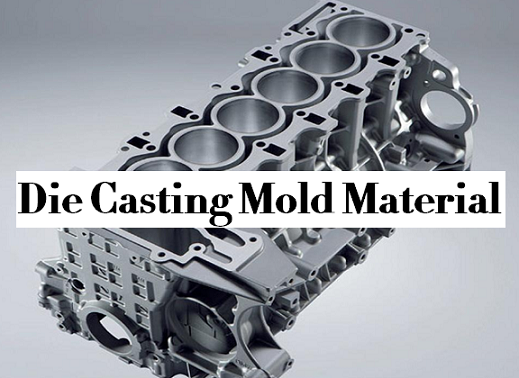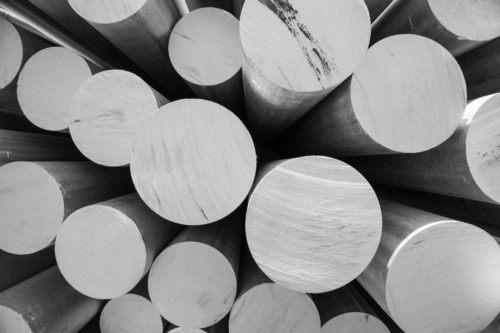Everything about Stahl Specialty Company
Everything about Stahl Specialty Company
Blog Article
Some Known Incorrect Statements About Stahl Specialty Company
Table of ContentsThe Facts About Stahl Specialty Company RevealedMore About Stahl Specialty CompanyStahl Specialty Company Can Be Fun For EveryoneThe Ultimate Guide To Stahl Specialty CompanyStahl Specialty Company Fundamentals Explained
Chemical Contrast of Cast Aluminum Alloys Silicon advertises castability by minimizing the alloy's melting temperature level and boosting fluidness during casting. Additionally, silicon contributes to the alloy's stamina and put on resistance, making it valuable in applications where toughness is essential, such as automobile parts and engine parts.It additionally enhances the machinability of the alloy, making it simpler to refine right into completed products. In this way, iron contributes to the general workability of light weight aluminum alloys. Copper enhances electrical conductivity, making it helpful in electric applications. It additionally enhances deterioration resistance and includes to the alloy's total toughness.
Manganese adds to the stamina of light weight aluminum alloys and boosts workability. It is frequently made use of in wrought light weight aluminum items like sheets, extrusions, and accounts. The visibility of manganese aids in the alloy's formability and resistance to splitting throughout manufacture processes. Magnesium is a light-weight element that provides stamina and influence resistance to aluminum alloys.
It allows the manufacturing of light-weight parts with exceptional mechanical properties. Zinc enhances the castability of light weight aluminum alloys and assists regulate the solidification procedure throughout casting. It improves the alloy's toughness and solidity. It is often located in applications where complex forms and fine information are needed, such as attractive spreadings and specific automobile parts.
Examine This Report on Stahl Specialty Company
Since aluminum-silicon alloys have excellent spreading homes, high gas residential or commercial properties, basic processes, and excellent deterioration resistance, aluminum-silicon alloys are most typically made use of in the die-casting industry at home and abroad. At the same time, aluminum-silicon alloys are additionally reasonably very early and widely identified alloys established and utilized in die-casting. After constant research study and improvement, a lot of the present international mainstream aluminum-silicon alloys have actually been settled and are absolutely nothing even more than A356, A360, A380, ADC12, B390, and A413.
The primary thermal conductivity, tensile stamina, return stamina, and elongation vary. Select suitable resources according to the efficiency of the target product created. Amongst the above alloys, A356 has the highest thermal conductivity, and A380 and ADC12 have the lowest. The tensile limit is the contrary. A360 has the most effective yield stamina and the greatest elongation price.

The 45-Second Trick For Stahl Specialty Company
In accuracy spreading, 6063 is fit for applications where complex geometries and high-grade surface area coatings are vital. Examples include telecommunication enclosures, where the alloy's superior formability permits for smooth and cosmetically pleasing layouts while preserving architectural integrity. In a similar way, in the Illumination Solutions sector, precision-cast 6063 parts create stylish and reliable illumination components that require detailed shapes and great thermal performance.
(https://giphy.com/channel/stahlspecialc)
It results in a finer surface area finish and much better corrosion resistance in A360. The A360 displays superior elongation, making it perfect for facility and thin-walled parts. In precision casting applications, A360 is well-suited for markets such as Consumer Electronic Devices, Telecommunication, and Power Tools. Foundry near me. Its enhanced fluidness allows for complex, high-precision components like mobile phone casings and communication gadget real estates.

In precision spreading, aluminum 413 beams in the Customer Electronic Devices Click This Link and Power Tools industries. This alloy's remarkable corrosion resistance makes it an exceptional option for exterior applications, ensuring resilient, resilient products in the stated industries.
The Stahl Specialty Company Ideas
The aluminum alloy you choose will substantially affect both the spreading process and the residential properties of the last item. Because of this, you should make your choice thoroughly and take an informed approach.
Identifying the most ideal light weight aluminum alloy for your application will certainly suggest weighing a large variety of qualities. These relative alloy characteristics adhere to the North American Die Casting Organization's standards, and we have actually separated them right into two categories. Foundry near me. The initial category addresses alloy attributes that impact the manufacturing procedure. The second covers characteristics impacting the properties of the last item.
The alloy you select for die spreading directly impacts a number of aspects of the casting process, like exactly how easy the alloy is to collaborate with and if it is prone to casting problems. Warm breaking, also called solidification splitting, is a regular die spreading flaw for aluminum alloys that can lead to internal or surface-level tears or splits.
Our Stahl Specialty Company Ideas
Particular light weight aluminum alloys are a lot more at risk to warm breaking than others, and your choice must consider this. aluminum metal casting. It can harm both the cast and the die, so you must look for alloys with high anti-soldering buildings.
Rust resistance, which is already a noteworthy feature of light weight aluminum, can differ significantly from alloy to alloy and is a necessary characteristic to consider depending on the environmental conditions your item will certainly be subjected to. Put on resistance is one more building generally looked for in light weight aluminum items and can differentiate some alloys.
Report this page